Humankind is a game about how you want to be remembered
Humankind makes you seriously think about what you want your legacy to be
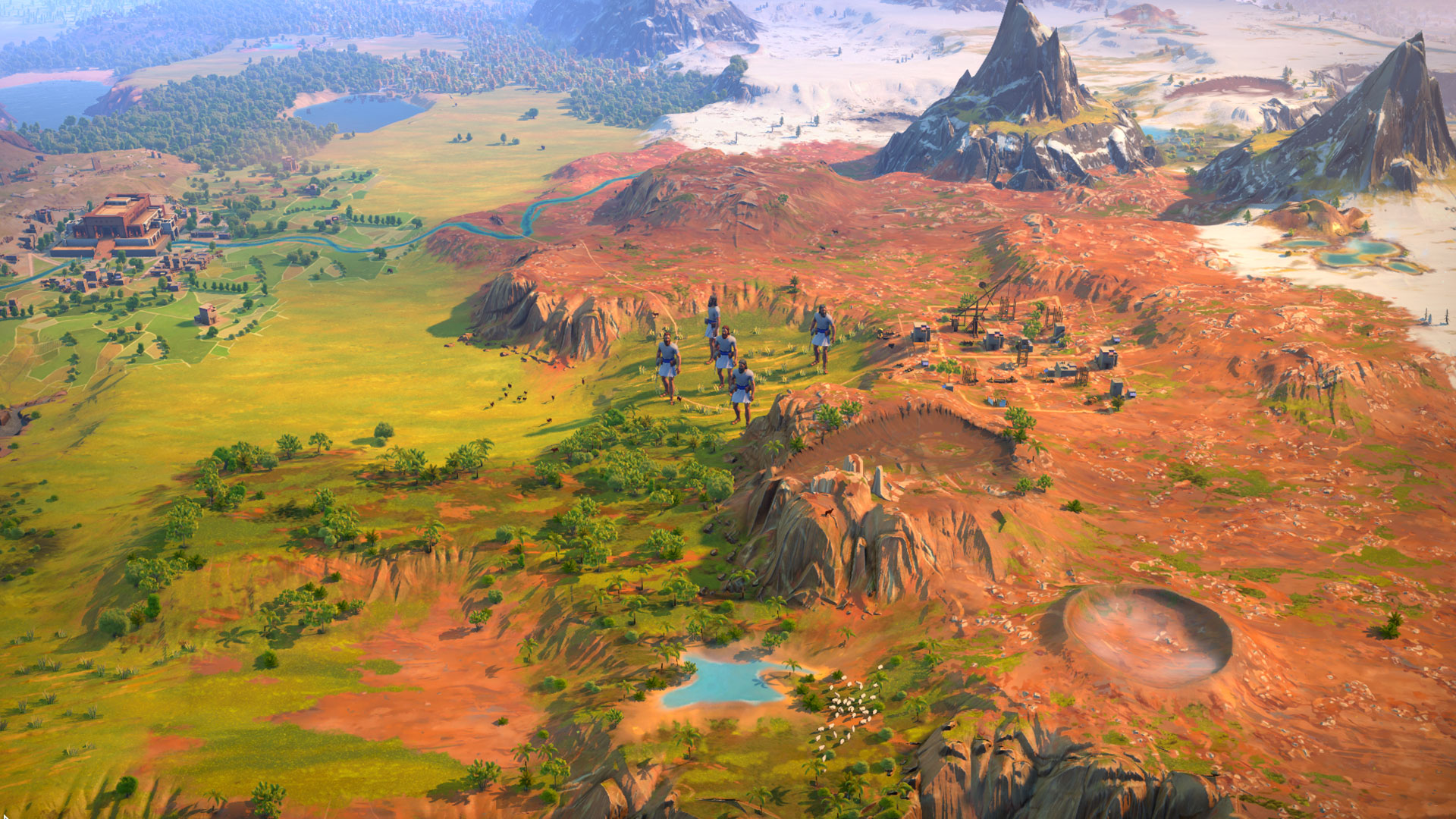
The idea of leaving some kind of legacy, of wanting to be remembered for something, feels like something we've all wrestled with at least once. It's certainly something that I've thought about plenty of times as I've started to become more of an "adult". Now, imagine if you could leave your stamp on multiple eras, on various civilizations throughout history? Well, meet Humankind, the latest game from Sega developer Amplitude Studios.
The developer behind many a 4X strategy game, including Endless Space, Humankind is something new. Something the team is calling the game they've always wanted to make. It's another 4X game, but this time the focus is on creating a legacy. It's about deciding, and actioning, what you want to be remembered for as you recreate history, forging your own civilisation out of a million possible combinations.
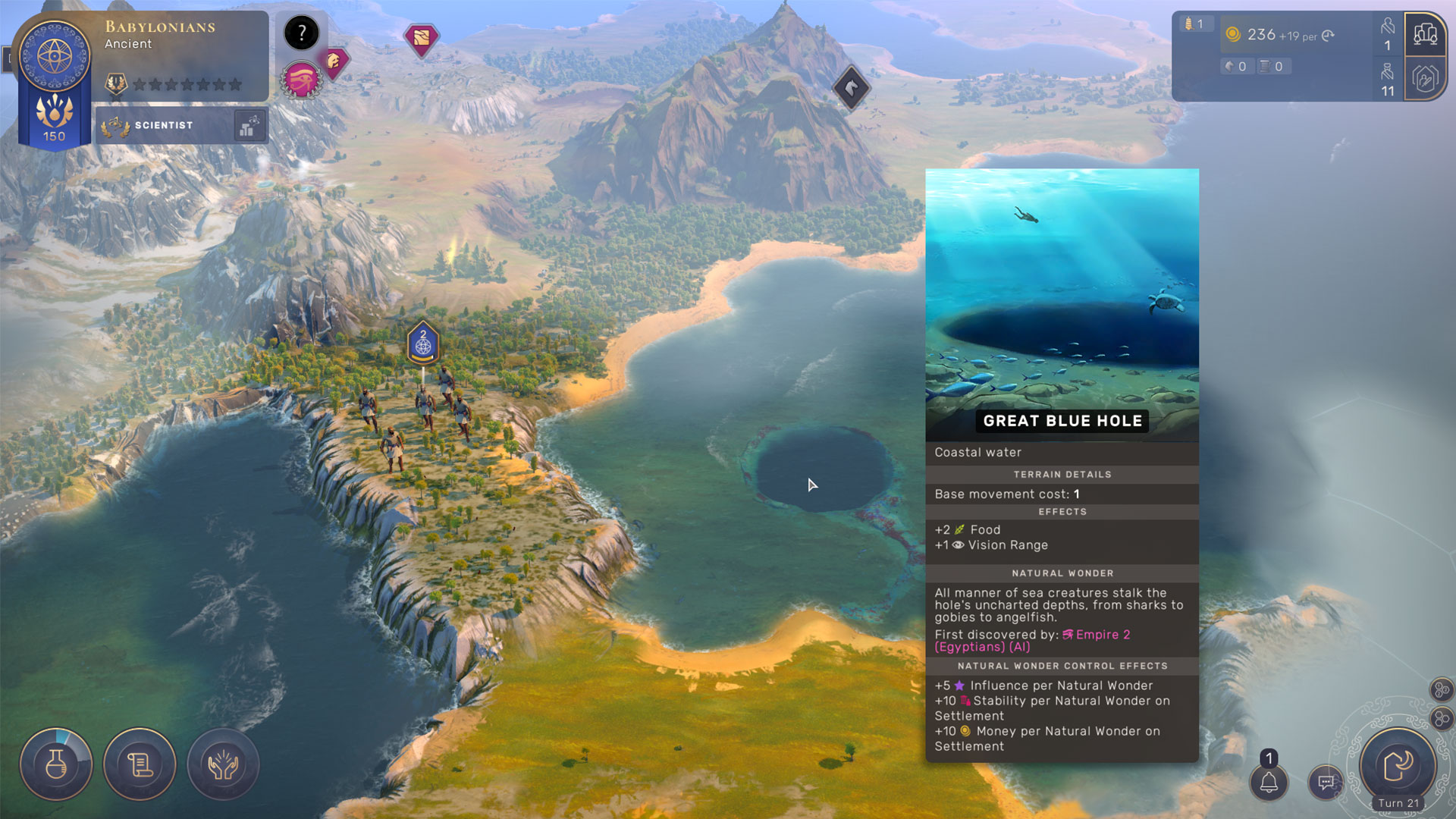
There are six eras to move through, each with 10 cultures to choose from. In my preview demo, we take a stab at a playthrough of the game's first, ancient era. Initially, I try out the Ancient Egyptian culture, with its focus on building, and then later I dabble with the Harappans, with their agrarian take on the ancient era. Each culture has its own perks and abilities, but regardless of the culture you choose, you'll be working to accrue fame points. This amoral system is what you'll use to start building your legacy, by achieving various feats that will build up to shape what you leave behind.
Fame can be earned through two distinct methods. The first is World Deeds, which are a series of objectives that every player – human or AI – can aim to accomplish in each era, but can only be achieved once. These range from discovering an entire continent, to building a wonder, or discovering a landmark like Mount Everest. There aren't many of them, so sometimes it can feel like a race to tick them off before someone else does, especially as they count as the legends that will spread across the land; the tales that will define you.
Then, there are Era Stars. These are mapped out across seven types that are linked to the different affinities in the game, such as agrarian or merchant, militarist or scientist. You're rewarded for a variety of activities and accomplishments in that way, many of which aren't related to anything combative, which is great for someone who finds it difficult to listen to the sound of horses dying on repeat. Sorry cavalry.
Fame and infamy
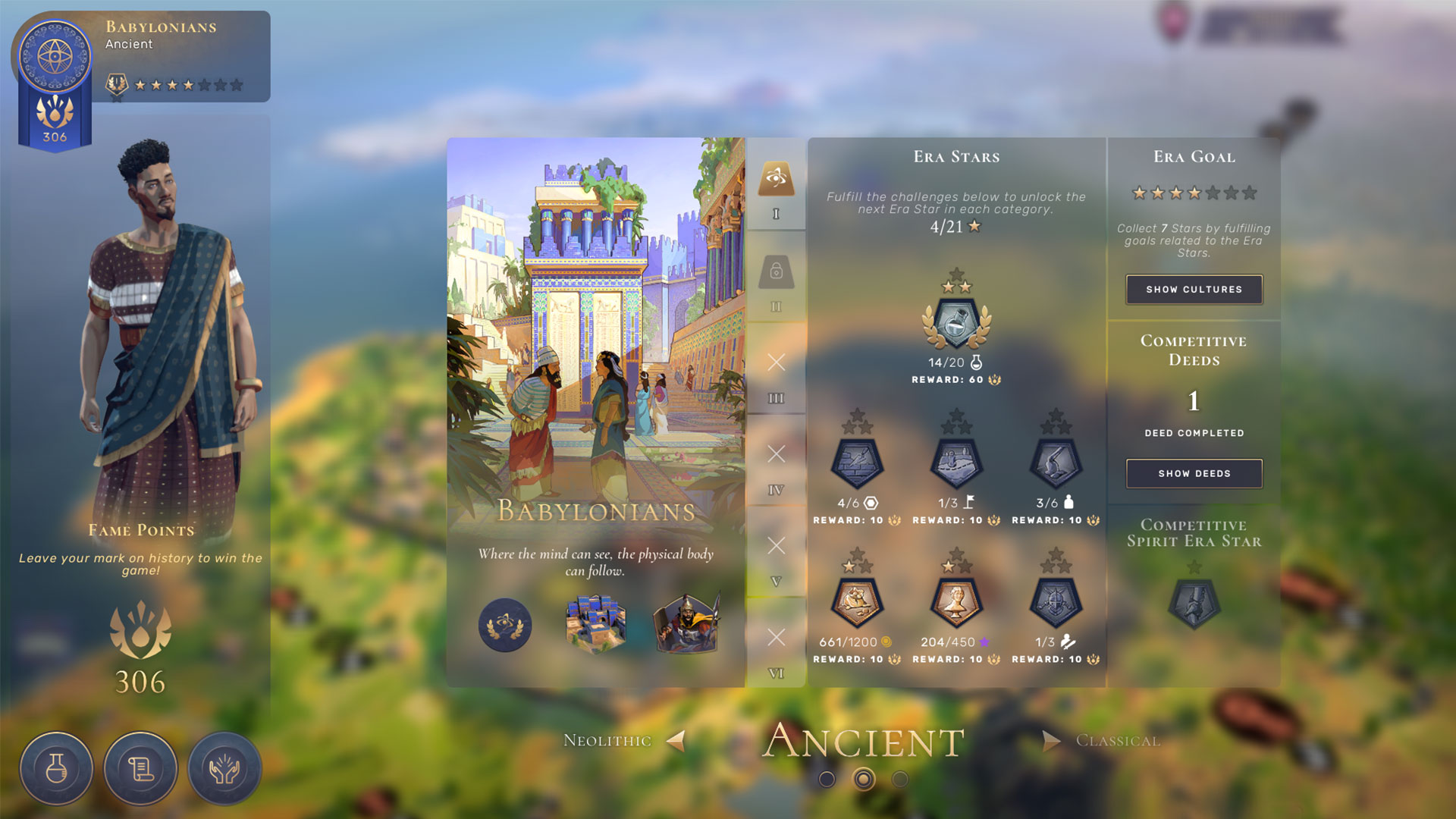
All of this adds up to an overall fame score, which might feel like a metric you're measured by in other 4X games, but it's been specifically designed to allow you more freedom to define your own measurements of success.
"There is a score... and then there's telling that story [behind the score]," explains Romain de Waubert, studio head and creative director on Humankind. "The big idea is the fact that we look at history not really like 'who is number one today?' or 'who had the biggest army?' It's really about all the types of things that famous civilisations, and famous cultures and people, were remembered for."
Weekly digests, tales from the communities you love, and more
"We also want to simplify 4X mechanics. By creating this unifying, one single victory condition, we were moving away from the more blurry victory conditions, and games that you are basically done with after the mid-game."
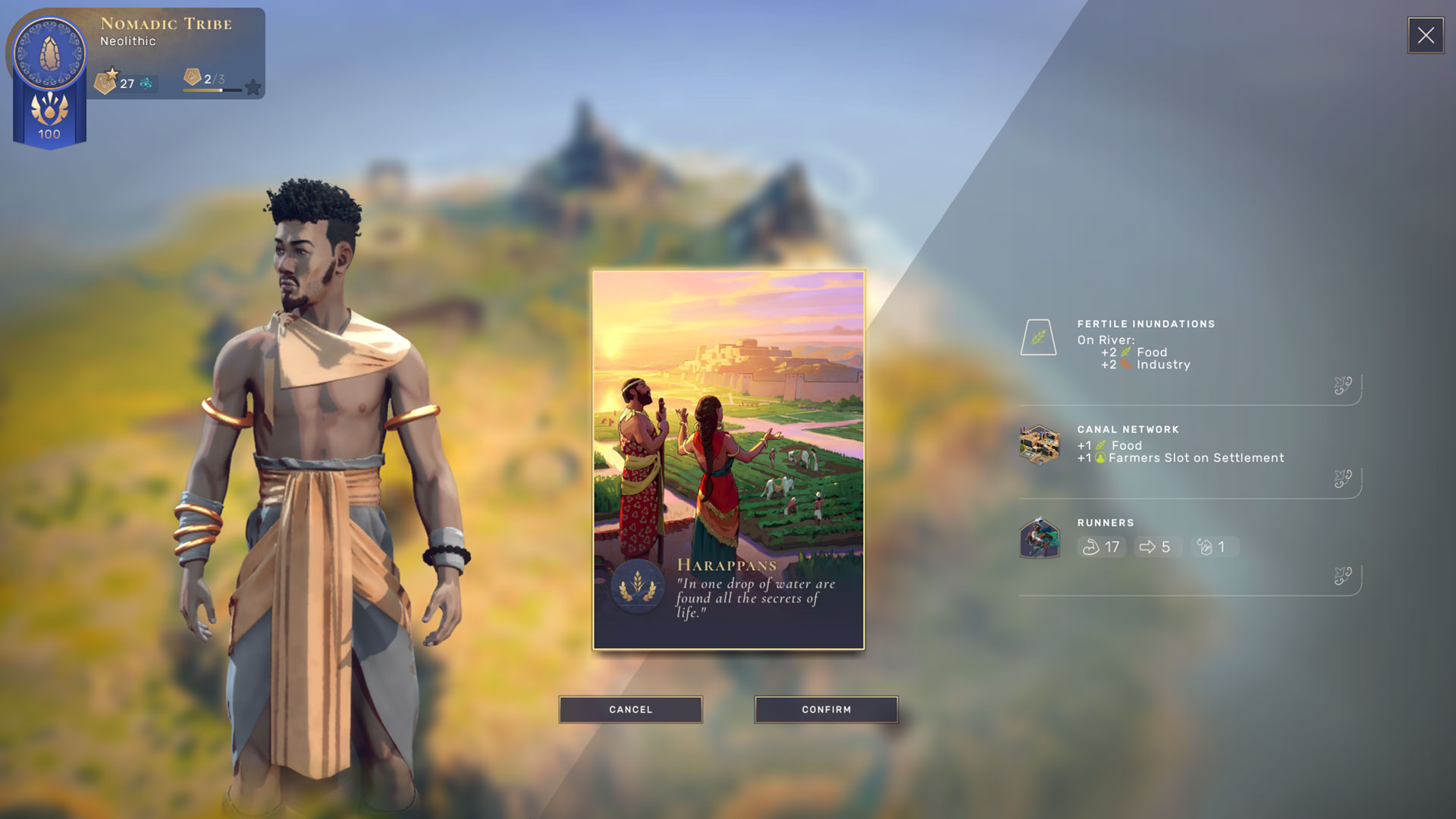
As someone who enjoys more of the diplomacy and morality of 4X games, rather than combat, Humankind's approach to victory is a refreshing one. It's not always about having the biggest army, or actually about what your civilisation looks like at the end of seven eras. It's about the journey, everything you accomplish along the way, and the decisions you made too. It's a much more dynamic and accessible way to approach the 4X genre.
"You might discover an entire chart or an entire continent in era one, as the Babylonians. That might be an incredible feat," adds de Waubert. "And then, two eras later, someone may come to the continent and beat you in a military fashion. Well, them beating you is not going to outshine what you did before. Having peacefully charted an entire continent might very well score more points than them invading you."
"What humankind achieves echoes through time. Some stuff that happened in the Ancient era might seem trivial for today, but it was amazing at the time, and we really wanted to reflect that in the [fame] scoring system."
Morals and metagames
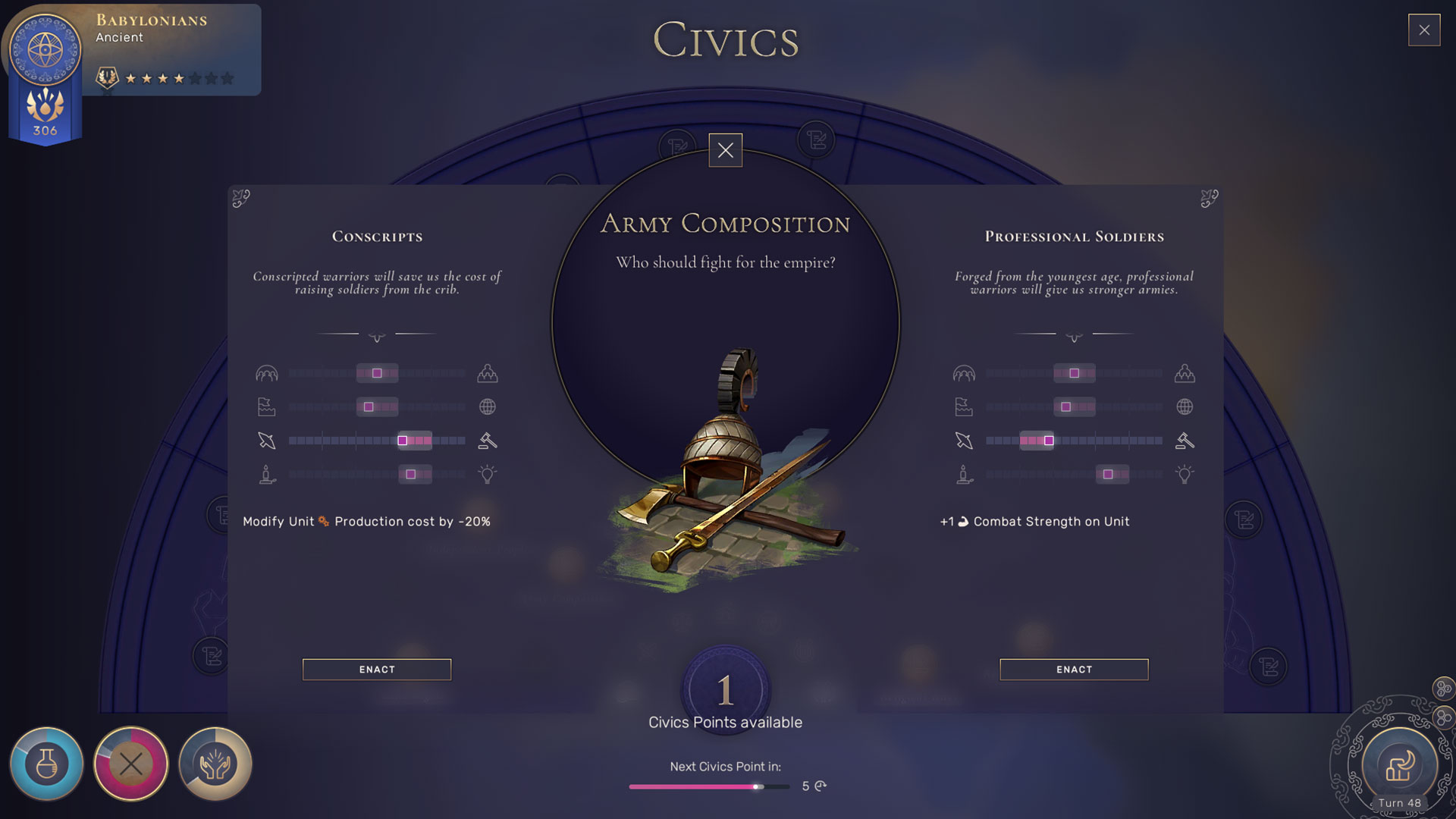
Tying into the idea of building your ultimate civilization is the Civics feature. These are the big moral questions that you're being asked as the ultimate leader of each culture, which centre around politics, society, economy and more of the core things that really matter. Each decision will ultimately affect the gameplay, but as Jean-Maxime Moris, executive producer on Humankind, explains "before they trickle down, they trickle up".
"In order to ask the questions – like what you want to do with slaves or what is your take on green energy or whatever – we need context and context is brought by [in-game] events. So you might have events that pop up, and that will actually trigger civics being unlocked. And sometimes civics just get unlocked from notifications. But they're always based on what's happened in your game, and then you get to make that choice."
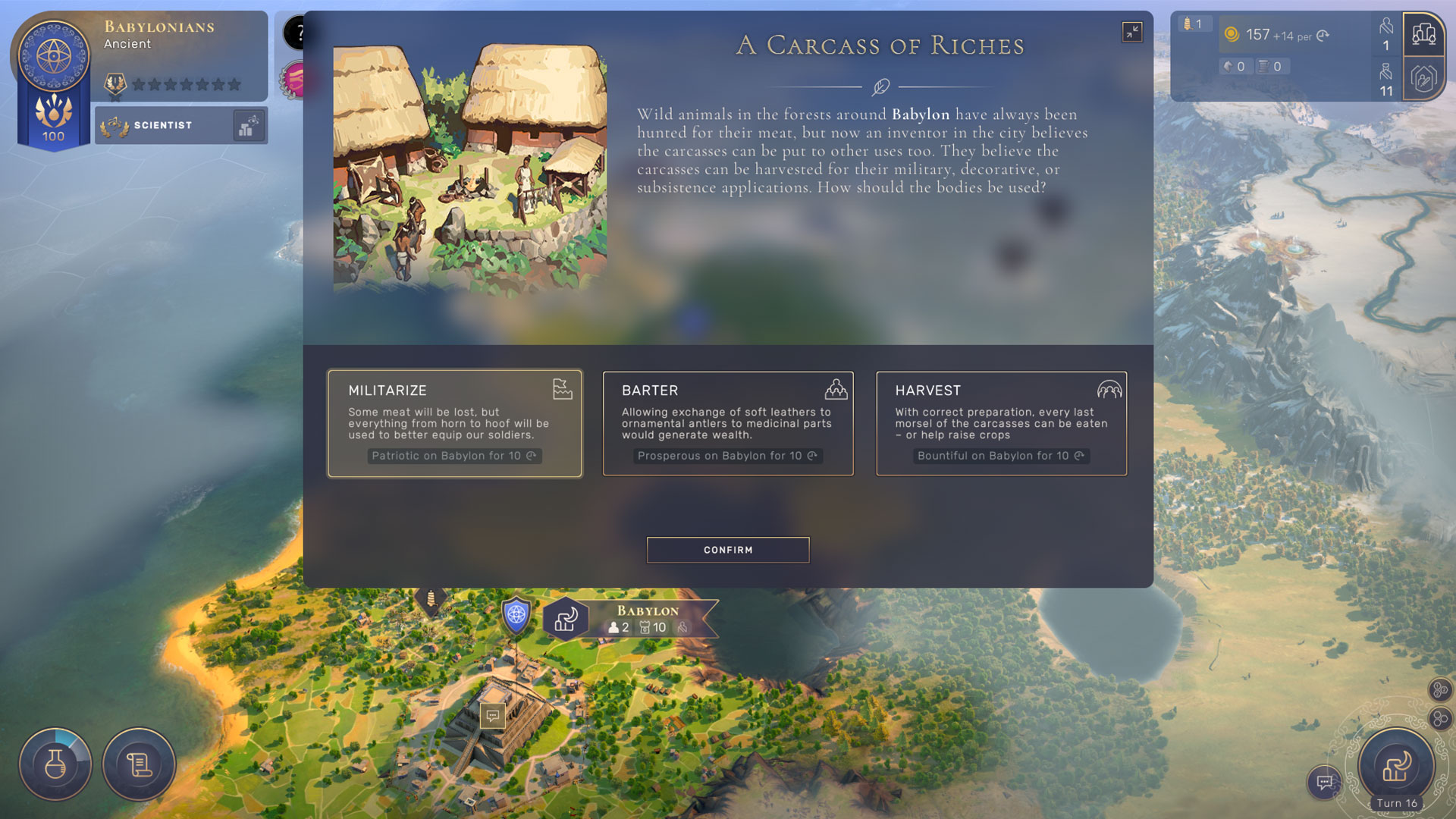
Events will always give you an immediate bonus, but these Civics will force you down an ideological axis, ranging from economical to geopolitical and everything in between.
"It's all about creating the country of your dreams, and the right political element of it. It's the kind of values you wish your country had. Imagine that a whole nation you're creating all the time had values – you're having it created all the time through all these choices you have picked. And yet they give you this kind of direction that you're going for."
At a time where our ability to affect change – especially politically – feels so weak, Humankind is an interesting and empowering take on the 4X genre. It's not entirely new of course, but the breadth of actions that are taken into account for an ultimate success story is certainly encouraging, especially when you consider that although my playthrough was just post-neolithic, its content does span all the way to the present day.
"When you're developing a historical game in 2020, you have a responsibility in terms of how you look at history, and how you talk about it," says de Waubert. "What we took from the start was that we had this abstract notion of being able to combine cultures to be able to create your own civilization. And by acknowledging the fact that every nation, wherever it is, has at some point, been the result of a cultural coming together, and being stronger together."
"In terms of the topics we address with the Civics or the narrative events that you saw today, they span six eras. When we arrive in era six, obviously there will be events in the 21st century, and topics and issues of diversity that will specifically be tackled. We will try to take the best look as we can at our current era."
Humankind is due to land on PC sometime in 2020.

Sam Loveridge is the Brand Director and former Global Editor-in-Chief of GamesRadar. She joined the team in August 2017. Sam came to GamesRadar after working at TrustedReviews, Digital Spy, and Fandom, following the completion of an MA in Journalism. In her time, she's also had appearances on The Guardian, BBC, and more. Her experience has seen her cover console and PC games, along with gaming hardware, for a decade, and for GamesRadar, she's in charge of the site's overall direction, managing the team, and making sure it's the best it can be. Her gaming passions lie with weird simulation games, big open-world RPGs, and beautifully crafted indies. She plays across all platforms, and specializes in titles like Pokemon, Assassin's Creed, The Sims, and more. Basically, she loves all games that aren't sports or fighting titles! In her spare time, Sam likes to live like Stardew Valley by cooking and baking, growing vegetables, and enjoying life in the countryside.


